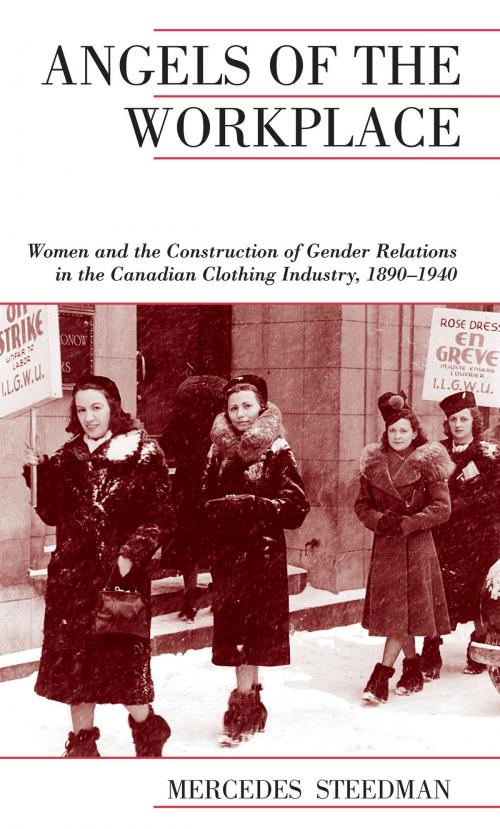Angels of the Workplace
Women and the Construction of Gender Relations in the Canadian Clothing Industry, 1890-1940
Nonfiction, History, Canada, Americas, Native American| Author: | Mercedes Steedman | ISBN: | 9781442659391 |
| Publisher: | University of Toronto Press, Scholarly Publishing Division | Publication: | December 15, 1997 |
| Imprint: | Language: | English |
| Author: | Mercedes Steedman |
| ISBN: | 9781442659391 |
| Publisher: | University of Toronto Press, Scholarly Publishing Division |
| Publication: | December 15, 1997 |
| Imprint: | |
| Language: | English |
In this renowned 1997 study of the clothing industry in Canada, Mercedes Steedman examines how the intricate weaving together of the meanings of class, gender, ethnicity, family, and the workplace created a job ghetto for women. Although women comprised a significant majority of garment workers, their roles were limited both in the workplace and in the trade union bureaucracy. Detailing the disparaties between men and women in terms of wages and representation, Angels of the Workplace is the definitive history of discrimination against women in Canada's clothing industry.
Steedman shows the crucial role that women played at the front of the picket lines during labour strikes and reveals how they gained sympathy and favourable media coverage for the workers' cause. Tracing both the new hopes for more equitable work brought about by left-wing unionism, and the disappointments caused by the cooperation of labour and management in the "new unionism" of the 1930s, Angels of the Workplace reveals how formalized workplace gender discrimination was formalized for the rest of the century.
In this renowned 1997 study of the clothing industry in Canada, Mercedes Steedman examines how the intricate weaving together of the meanings of class, gender, ethnicity, family, and the workplace created a job ghetto for women. Although women comprised a significant majority of garment workers, their roles were limited both in the workplace and in the trade union bureaucracy. Detailing the disparaties between men and women in terms of wages and representation, Angels of the Workplace is the definitive history of discrimination against women in Canada's clothing industry.
Steedman shows the crucial role that women played at the front of the picket lines during labour strikes and reveals how they gained sympathy and favourable media coverage for the workers' cause. Tracing both the new hopes for more equitable work brought about by left-wing unionism, and the disappointments caused by the cooperation of labour and management in the "new unionism" of the 1930s, Angels of the Workplace reveals how formalized workplace gender discrimination was formalized for the rest of the century.















